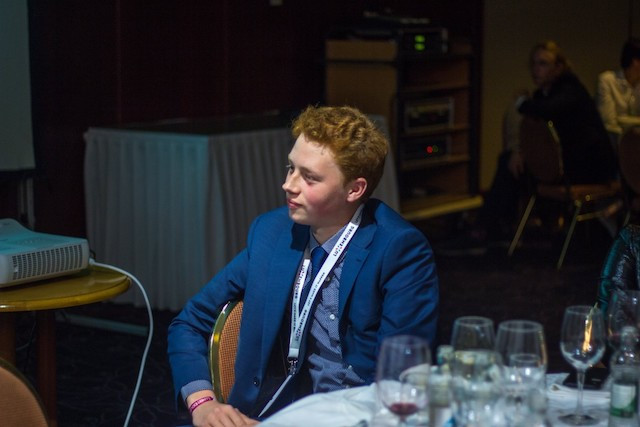Still studying at the Lycée Michel Rodange in Luxembourg-Hollerich, Ruhstaller is a member of the Jugendparlament and the European Youth Parliament and has just finished a two year mandate on his student council.
Understandably the topics of youth and education are important to him: “The old system has long-needed the update it is undergoing. I am not saying everything about this update is good, but it was a boost to bring about change,” he says. For example, he considers the free book offer as “extremely wasteful” because books will only be used once. Ruhstaller feels that collaborative working such as the Bildungsdesch (roundtable of education stakeholders) is a good way forward on education.
Education, housing and mobility
Ruhstaller admits that he doesn’t have any “major issues that are directly making life unbearable for me at the moment”, and that issues like arriving late for school due to traffic or not always agreeing with everything done at school are ones that he tries to actively resolve. “Thinking ahead, however, I can see some concerns that might make life hard, and they are also according to certain polls going to decide the outcome of the elections--namely housing and mobility,” he says.
“The housing market crisis is an urgent matter that sadly can’t be fixed over night,” he argues. He wants to see a sustainable solution that will allow reasonable prices, a diverse offer including social housing that is affordable for young individuals and families. He admits that Luxembourg has made progress in this area, but there is still more to be done.
Traffic is also a concern for Ruhstaller although he “wouldn’t say it is a hopeless case. This government, especially Mr Bausch has in my opinion done a lot to get things going and to try to make public mobility sustainable and more efficient, but it is a work in progress.”
He envisages fewer cars in general and more room for pedestrians and cyclists, especially in areas like Luxembourg City. “They should try to keep the number of cars to a minimum and direct them around the city,” he says, adding that he’d like to see fewer buses in the city centre, perhaps with the development of a central station running city shuttle buses.
Politicians who listen and actively engage
On the election campaign, he feels politicians should focus less on getting elected and more on having a “serious dialogue with citizens about their concerns not only before the elections but while working on their programmes”. He cites too much time is spent “beating about the bush” instead of answering citizen’s questions directly and concretely.
“I personally enjoy the round table discussions, especially the ones organised by Jugendkonferenz CGJL and the Zentrum fir politesch Bildung ZpB, where young politicians discuss topics with students in schools across Luxembourg,” says Ruhstaller. He feels media coverage is interesting, but notes that some papers are connected to different parties.
Ruhstaller comments:
“The election debates on RTL were not as heated as I expected. For example, the one between [Francois] Bausch (Déi Gréng) and [Étienne] Schneider (LSAP) showed they have similar programmes. Same goes for the DP and CSV who have their differences about some things like education, but may have further differences go unnoticed because some points are vague.”
Ruhstaller’s five step system for voting
How will Ruhstaller vote? He says:
“I set up a five step system to figure out who I want to vote for. First, I tried to engage with as many politicians as possible from all the parties, even the ones I might have prejudices about. I also had an extensive look at the party programmes on the internet or what they have put through my mailbox. Secondly, I try to follow public debates, discussions and presentations. Thirdly, I used the Smartwielen platform, which is a good way to find out if a candidate truly shares your opinions and values. Fourthly, I try to meet politicians that share my opinions or follow what they do to build a picture of their competency and trustworthiness. Finally, I will evaluate everything before I vote on Sunday.”
Ruhstaller is clear he will vote for young politicians and parties that value young people. He concludes:
“Some parties more than others, and some candidates, do more for young people, although every party has a section dedicated to youth. I don’t know if the parties consider the young vote, but the Youth Parliament for example provides a platform to make our voices heard. This platform could and should cooperate even better with politicians than it is now, to better meet the needs of young people. Simply listening to these types of organisations is not enough, we need politicians to actually value the fruit of the work of these organisations.”
